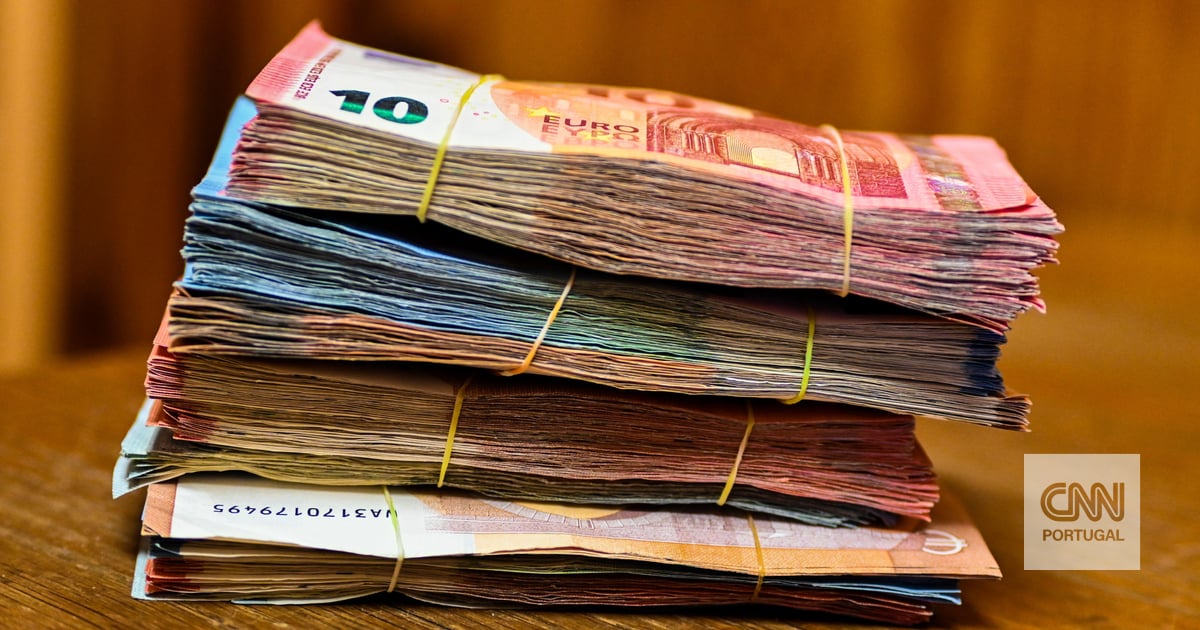“Fractured banks unblocked customers”
The amount invested by the Portuguese in savings certificates has doubled in just one year, which is an absolute record in the use of this financial mechanism. There are already more than 25 billion euros in investments in the state’s direct debt, a sign that something needs to change in the financial system.
The IMF’s head of financial markets information, Felipe García, told CNN Portugal that there is a clear change in habits, explaining that values are just the result of something that has already been noted for several months: the end of “inertia” for the Portuguese. It also speaks of “negligence” on the part of the banks, which resulted in something rare.
The expert points out that “the inertia of banks has broken the inertia of customers,” also pointing to the breakdown of the basic relationship between banking services and trust. This trust is built on the level of service, on the image, but also on the “perception of good faith” – and the banks were “a little careless in the way they managed their relationship with customers”.
“It is a bit strange to get a mortgage statement with 3% interest and then 0.1% deposit interest,” asserts Felipe Garcia, noting that banks have resisted increasing customer bonuses for deposits they have, starting now, in a more visible way, to bear the consequences.
Optimize CEO Pedro Lino recalls another factor: “The interest rates on time deposits in Portugal are among the lowest in Europe,” which makes alternatives such as certificates of savings, bonds or other investments particularly attractive. Indeed, analysis Data from the Bank of Portugal Referring to December, it is possible to see that our country is indeed the one that offers the lowest return on time deposits in the entire Eurozone.
On the other hand, the CEO of Optimize says, the Portuguese began to diversify their behavior, after they became “afraid” after the stock market collapse of companies such as PT or BES. “Right now, there are very important alternatives and this is beginning to be understood,” he says.
The sun shines for everyone
Banks “must catch the loss,” Felipe Garcia asserts: he is already beginning to notice that financial investments are beginning to yield greater profitability in banks, after several months of resistance – although it is still far from what they can achieve.
“So far, they have not paid deposits but wanted to collect credits,” adds the economist, who sees an inflationary context that should have been managed more carefully by the sector. For now, he says, “the damage is done” and not just in Portugal.
This is a topic that involves many countries. In the United States, customers also take money from banks and put them in money market funds,” Felipe Garcia confirms, noting that it is a more versatile system and that in Portugal this money transfer ends up with applications such as postal certificates of savings.
The economist concludes: “Now people have got up and gone to put their money somewhere else.”
This is what Pedro Lino calls the “discrepancy” between what the bank collects and what it offers, and it is what motivates people to “take risks and withdraw money” to put it elsewhere, namely in savings certificates.
In terms of banks’ resistance to increasing deposit payments, the specialist says that’s something that’s starting to disappear, but it’s driven, in large part, by too much money in the system. Now, and with the liquidity gone, [os bancos] He will be pressured to raise interest rates,” which are already beginning to emerge, but are still not attractive enough to encourage customers to stay or return.
And he repeats that “Banks go after customers because they feel the need. When banks need this and the level of deposits begins to decline, they will even have to raise interest rates to avoid competing products,” he repeats, speaking of additional pressures caused by the bankruptcy of banks such as Silicon Valley Bank or the problem that Occurred at Credit Suisse.
The peak of 2008 has nothing to do with it
One of the last major peaks in investment in savings certificates, although not on the scale that we are seeing now, was recorded in 2008 – in January, more precisely, when warnings of a global crisis were already beginning to sound. levitation. Half a year ago, the value of savings certificates increased, but after half a year it fell sharply. The race was such that January 2008, through December 2022, was the month he had the most savings certificates.
For the specialists, there is no connection between the two scenarios, not least because the contexts are very different – bringing the crisis of 2008 to the picture of banking in both periods.
The current series is different, recalls Felipe Garcia, with a maximum interest rate, which did not happen in 2008. Moreover, says the head of the IMF, that was the period when the eurozone had one of the highest rates, revealing whether the certificate of savings is attractive enough.
“There is a certain tendency for us to say we are in a similar situation, but I don’t think so,” he says, ensuring that we are “not on the verge of a similar financial crisis, not least because the public is not worried about credit risk.”
This is a similar view to that of Pedro Lino, who recalls the interest rate hikes by the European Central Bank at the time – but with a fundamental difference: “Now there are no systemic problems in Portuguese banking, there is a search for profitability”.
We return to the beginning: it is the inertia of the banks that motivates the Portuguese to “get off the couch” to transfer money to savings certificates.

“Wannabe internet buff. Future teen idol. Hardcore zombie guru. Gamer. Avid creator. Entrepreneur. Bacon ninja.”

